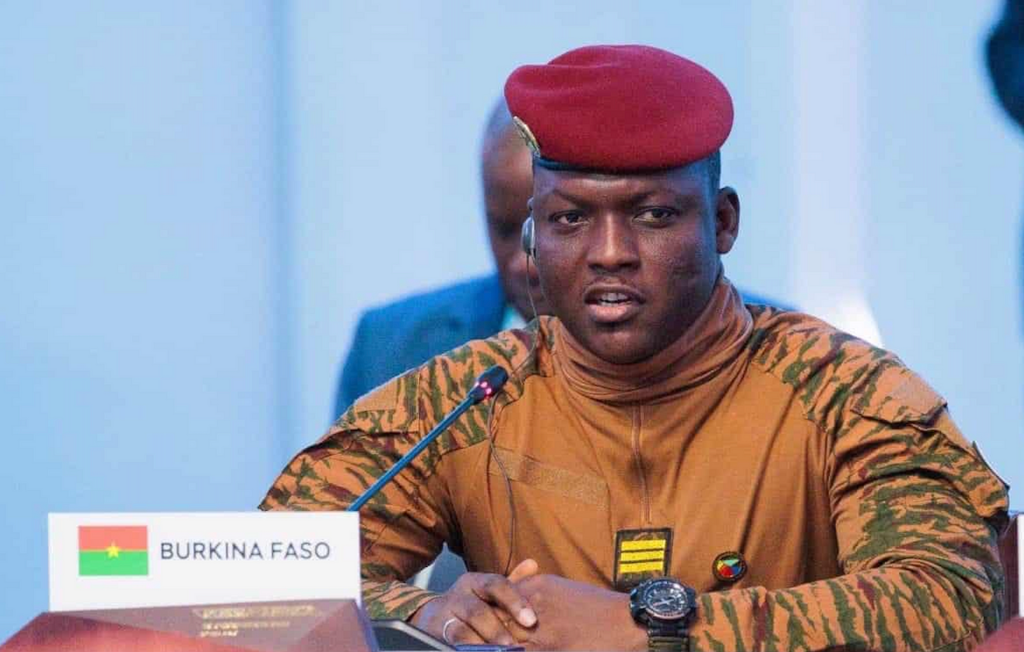
By Olakunle Agboola – Burkina Faso, a West African nation known for its rich cultural heritage and turbulent political history, has been shaped significantly by its leaders. Thomas Sankara and Ibrahim Traoré stand out for their distinctive leadership styles and ideologies.
Thomas Sankara: The Iconic Revolutionary
Thomas Sankara, often celebrated as “Africa’s Che Guevara,” became President of Burkina Faso in 1983 following a military coup. His vision for Burkina Faso was rooted in Marxist-Leninist principles and Pan-Africanism. The leadership style was characterized by radical reforms to achieve economic self-sufficiency, social equality, and national pride.
Sankara’s economic policies aimed to reduce foreign aid dependency and promote self-reliance, as he initiated large-scale agrarian reforms to boost food production and achieve food security. He urged Burkinabé to consume local products and minimize imports.
Sankara was an advocate of social justice, focusing on gender equality and the rights of marginalized individuals. He outlawed practices such as female genital mutilation and forced marriages. Women were encouraged to participate actively in all sectors of society, including the military.
Sankara’s government launched ambitious public health campaigns, notably a massive vaccination drive that significantly reduced infant mortality. His emphasis on education led to improved literacy rates, with numerous schools built across the country.
Recognizing the threat of desertification, Sankara initiated extensive reforestation projects. Millions of trees were planted, highlighting his commitment to environmental sustainability.
Leadership Style and Legacy
Sankara’s leadership was marked by austerity and integrity. He led by example, rejecting the opulent lifestyle often associated with corrupt political leaders. His government was characterized by transparency and anti-corruption measures. Sankara’s charismatic and revolutionary style inspired many but created enemies among the elite and international powers.
The enemies managed to end Sankara’s reign as his popularity soared beyond expectations. His reign abruptly ended in 1987 when he was assassinated in a coup orchestrated by his close ally, Blaise Compaoré. Despite his short time in power, he left a legacy symbolizing anti-imperialism and visionary leadership.
Ibrahim Traoré: The Modern Military Leader
Ibrahim Traoré, a more recent figure in Burkina Faso’s political landscape, assumed power in 2022 after a military coup. His leadership comes at a time of significant internal conflict, with the country facing severe security challenges due to jihadist insurgency and socio-political instability.
Traoré’s immediate focus has been on restoring security in Burkina Faso. His government has prioritized military campaigns against jihadist groups that have destabilized large parts of the country. He sought to strengthen the military and improve skills with regional and international partners to combat terrorism.
Traoré did not limit his campaign against Jihadist groups but emphasized good governance and combating corruption. He initiated reforms to enhance transparency and accountability within the government following the footsteps of Sankara and promised to complete what he started. Traore’s administration is likely compared to Sankara, focusing on rebuilding the trust between the government and the individuals.
He has implemented policies to promote economic recovery and social development, as he sought to address unemployment and improve living conditions through various socio-economic initiatives.
Traore has continued to pursue a pragmatic foreign policy, collaborating with international partners to assist Burkina Faso’s security and development needs. His approach has been more about practical alliances than ideological alignment.
Leadership Style
Traoré’s leadership style is pragmatic and military-oriented, reflecting his background. Unlike Sankara’s charismatic and ideological approach, Traoré’s tenure is characterized by a practical focus on immediate challenges, particularly security.
He has won the hearts of many Africans globally with his practical approach to solving imminent challenges, which is one of the characteristics of a great leader. Traore, a young military leader, has had his name on a gold plate of history as one of the leaders who could be trusted to grab the wheel of a nation.
Comparative Analysis
Thomas Sankara’s leadership was deeply ideological, as demonstrated by Marxist-Leninist principles and a vision of Pan-African unity and self-reliance. His reforms were radical and focused on transforming the socio-economic fabric of Burkina Faso. In contrast, Ibrahim Traoré’s approach is more pragmatic, focused solely on security and stability. While Traoré has implemented socio-economic reforms, his policies are not rooted in a specific ideological framework but are driven by immediate practical needs.
Sankara’s economic policies aimed at achieving self-sufficiency and reducing foreign dependency, strongly emphasizing local production and consumption. His social policies were progressive, particularly in promoting gender equality and public health. Traoré’s economic and social policies, while addressing crucial issues such as unemployment and corruption, are less radical and more focused on stabilizing and enhancing existing structures.
Sankara’s leadership was characterized by austerity, integrity, and a charismatic, revolutionary zeal. He led by example, fostering a sense of national pride and unity. Traoré, conversely, brings a military perspective to leadership, focusing on security and pragmatic governance. His approach is addressing immediate threats, and practical governance.
Thomas Sankara remains a revered figure in Burkina Faso and beyond, symbolizing anti-imperialism, revolutionary change, and integrity in leadership. His short tenure profoundly impacted the nation’s identity and aspirations. Ibrahim Traoré, still in his early years of leadership, has greatly impacted Burkina Faso navigating the nation through severe security issues, political instability, and neocolonialism.
Thomas Sankara and Ibrahim Traoré’s leadership style remains a source of inspiration in African leadership. Their contrasting leadership styles and policies will continue to provide valuable insights into the complexities of governing African nations where historical legacies and contemporary challenges intersect.
Traoré survived an assassination attempt in December 2022, highlighting the volatility and dangers inherent in Burkina Faso’s political landscape. This incident highlights the deep-rooted challenges and the high-stakes environment in which Traoré operates. Africans are concerned about Traore’s life not being cut short like Sankara and other pan-African leaders who have fought for economic reformation and building an egalitarian society.
Kindly follow us on twitter:@AfricanVoice2









